Soledad O'Brien Wants You to Get 'Uncomfortable' with the Untold Story of Rosa Parks: 'She Was a Real Rebel'
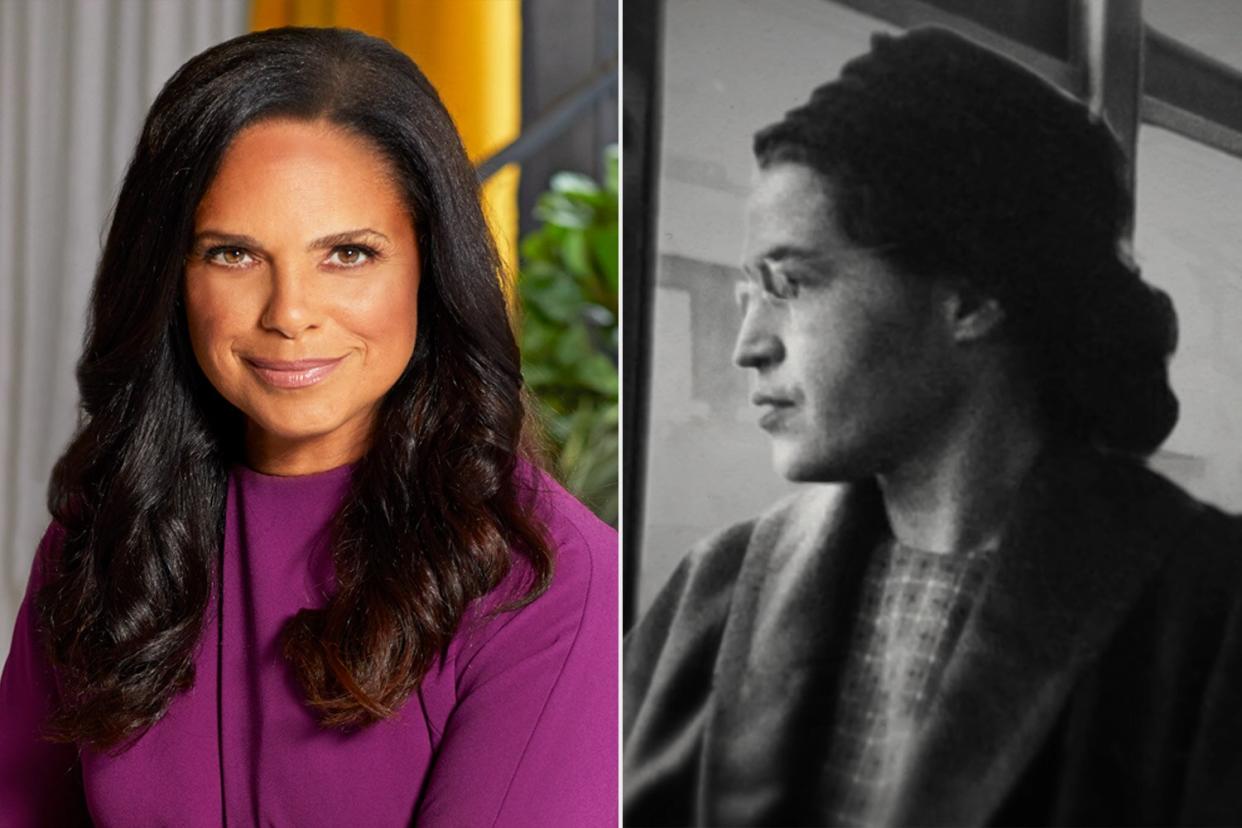
- Oops!Something went wrong.Please try again later.
philip friedman; peacock
The textbook story of Rosa Parks is a simple one. A weary, middle-aged Black seamstress sparked the Montgomery bus boycott in December 1955 by refusing to give up her seat to a white man.
It's neat. It's tidy. It's easy for elementary school students to digest. But a new documentary, The Rebellious Life of Mrs. Rosa Parks, is challenging the way the civil rights icon's story has been told.
"The narrative of Rosa Parks was misunderstood," journalist Soledad O'Brien, who executive produced the film, tells PEOPLE.
"You learn in school as a little kid: Rosa Parks was tired, her feet hurt, she didn't want to get up out of her seat," O'Brien continues. "And that was the moment that she decided to take a momentary, and even accidental, stand for civil rights. Well, that's actually not the story of Rosa Parks at all."
RELATED: Black Activists, Artists, Historians and Changemakers You Should Follow on Social Media
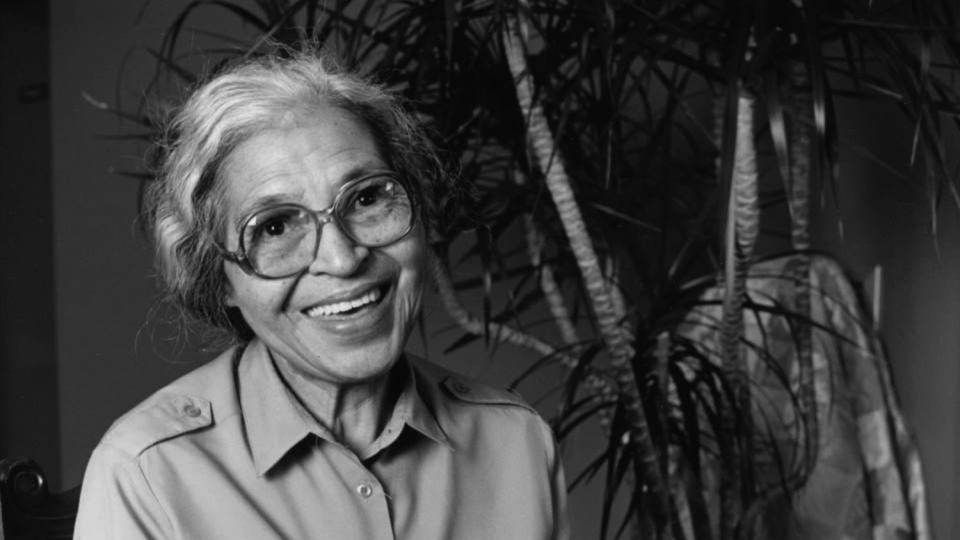
Peacock Civil rights icon Rosa Parks is the subject of a new documentary film.
Based on Jeanne Theoharis' book, also titled The Rebellious Life of Mrs. Rosa Parks, the new film (surprisingly, the first full-length feature documentary devoted to this key figure of the civil rights movement) shines a light on Parks' lifelong fight for racial justice, which included nonviolent protests as well as more radical views.
"Rosa Parks was a supporter of the Black Panthers," O'Brien says, referring to the political organization formed in 1966 by Black power revolutionary Huey P. Newton and Bobby Seale. "[She] liked Malcolm X as much as she liked Dr. [Martin Luther] King. Rosa Parks was fighting for justice her entire life and that part of the story has been incredibly glossed over for a host of reasons."
The film, which debuts on Peacock Wednesday, demonstrates how being exposed to racial violence as a child had an impact on Parks, who was born in Tuskegee, Ala., in 1913, and her lifelong quest for civil rights. At the age of 6, Parks witnessed the terror the Ku Klux Klan inflicted on her community, which was partially stoked by African American soldiers returning home from World War I and demanding equality.
In a clip used in the documentary, an older Parks is speaking at an event and describes staying up all night with her grandfather who, armed with a shotgun, was determined to protect his family and their home.
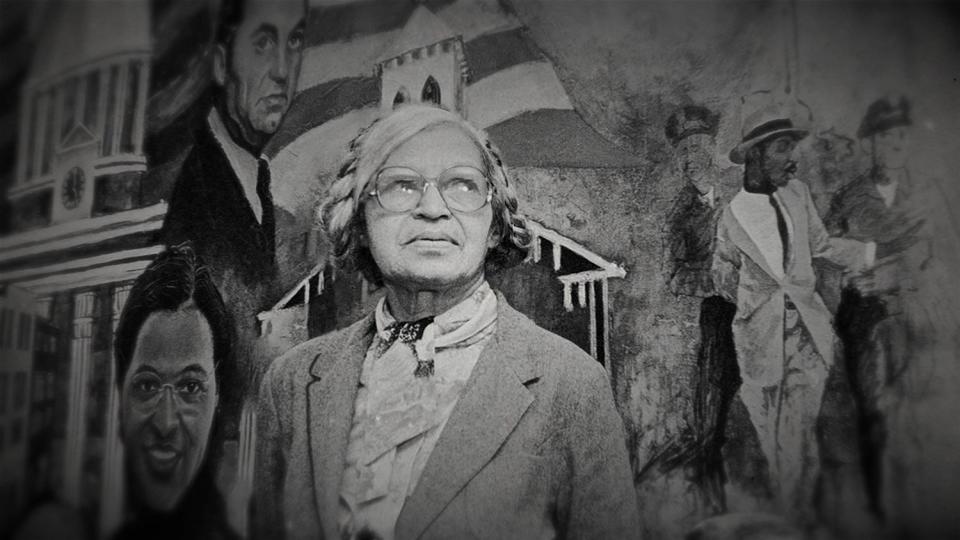
peacock Parks devoted her life to the fight for equity and justice.
"She wrote about it a lot, the anger that she had, even as a child, watching her grandfather and how he dealt with the trauma around the Ku Klux Klan. [It] was something that as a little kid was etched into her brain," O'Brien says. "I think that made her very untrusting of white people and untrusting of the fact justice could come. It made her a real fighter."
O'Brien believes that determination explains why Parks had friendships with both Dr. Martin Luther King Jr. (who supported nonviolent protest) and Malcolm X (who believed in securing equal rights by any means necessary).
"She was a supporter of equity and justice in any way that you could get there," she says. "A lot of that was because of her childhood and what she saw, a lot of the horrors that she experienced."
RELATED: Martin Luther King Jr.'s Son Reveals Why He 'Never Felt Afraid' While Facing Brutal Racism with Dad
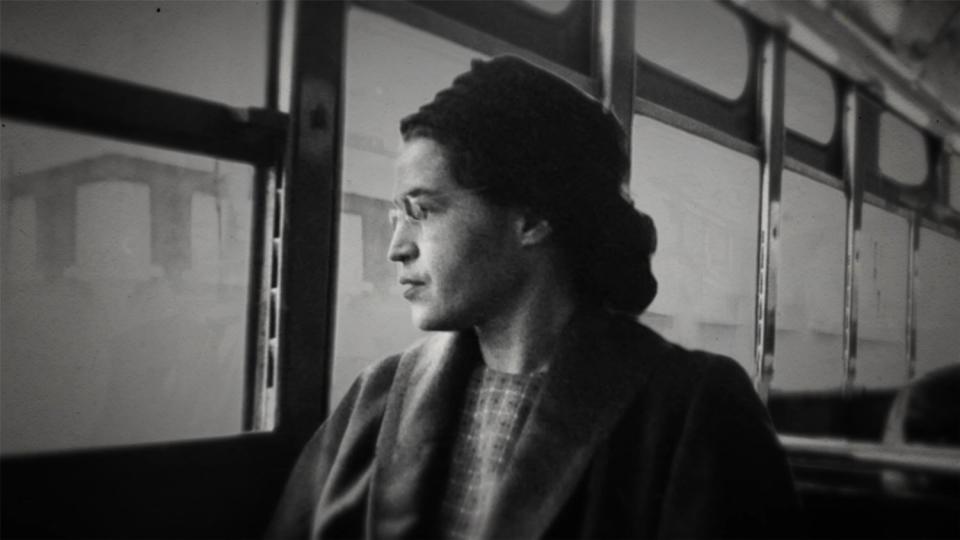
Peacock Parks' refusal to give up her seat to a white man sparked the Montgomery bus boycott in December 1955.
By the time Parks was a passenger on that Montgomery bus in 1955, she was 42 years old and had been a civil rights activist for years. The Rebellious Life of Mrs. Rosa Parks documents much of that experience.
For example: In 1932 at the age of 19, she married Raymond Parks, a barber who was already a member of the NAACP. In 1943 she joined the Montgomery branch of the association and, in addition to becoming its secretary, she helped investigate racial crimes against Black people. In 1944 that included taking the testimony of Recy Taylor, an African American woman who was raped by three white men in Abbeville, Ala.
For O'Brien, Parks' story cannot be distilled into a single moment. The lesson she wants viewers to take away is that "the fight for equity" is "not accidental." "It's lifelong struggle and work," she says, adding, "It's people working at the grassroots level for a very, very, very long time very, very hard."
Parks died in October 2005 at the age of 92, but remained on the frontlines of protests well into her old age, the documentary shows.
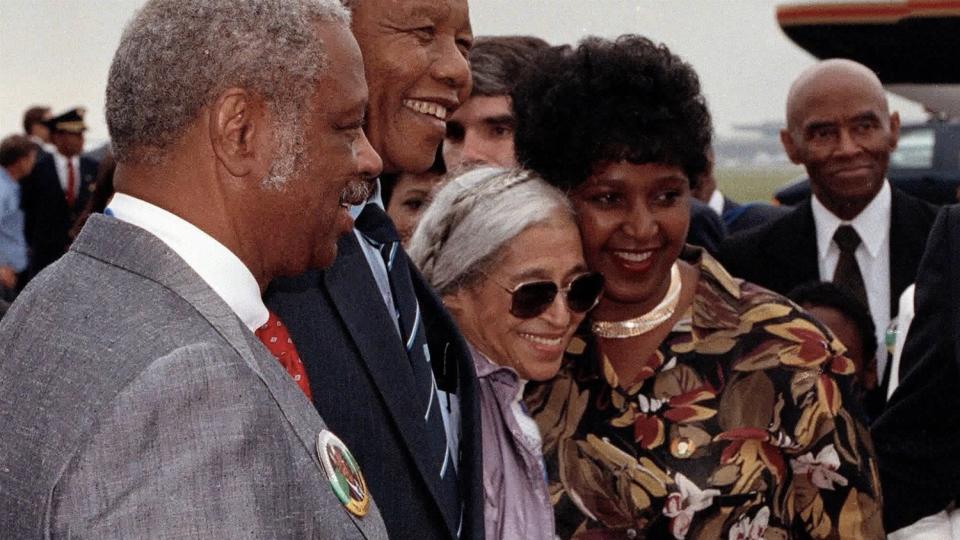
Peacock Parks meeting Nelson Mandela and his then wife Winnie in Detroit, Mich. in 1990, shortly after the anti-apartheid activist was released from prison in South Africa.
O'Brien hopes the film will make people "uncomfortable with the true narrative" of the diminutive activist with an "angelic face."
"She just had this canvas that people would put onto her what they thought. People felt like she was a mild-mannered seamstress and that became the narrative. Even though she was very clear about her stories," O'Brien says. "She was a real rebel."

